Corn is really tasty and even a nice snack treat. It has good nutritional value that comes with many health benefits. The cavies will like this, just as much as we do.
Guinea pigs can eat almost every part of the corn as long as it’s not cooked. This means they can eat corn kernels, husk or silk. They have a mild and sweet flavor, are soft and simple to chew, which is why they like to eat them.
Table of Content
Is Corn Good for Guinea Pigs? | Health Benefits
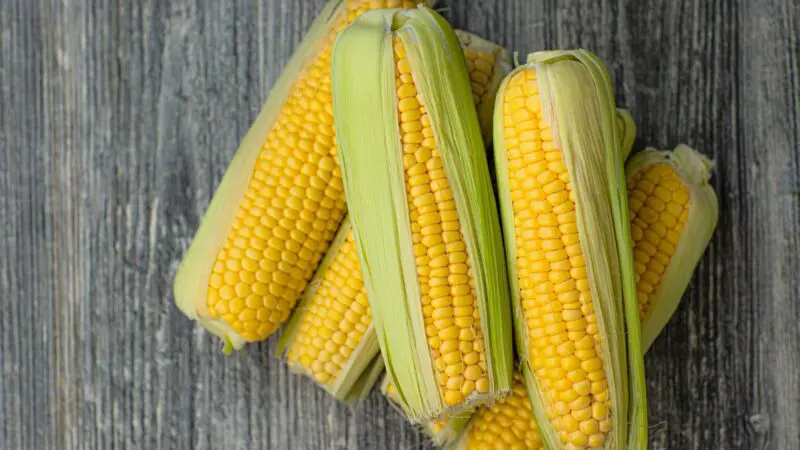
Corn has a lot of calories. Also, it is rich in carbs, fats, and has a good amount of proteins All of these things can give good satiety and ‘fullness’ after consuming it. It means the guinea pig will not feel extremely hungry after eating corn.
There are good antioxidants in corn, such as vitamin A, manganese, and selenium. They remove the free radicals that enter the organism. Also, they remove the damage caused by these free radicals. With antioxidants, the organism is less prone to diseases, the immune system is stronger and healthier, and the body doesn’t age so fast!
Two essential minerals for the blood are found in corn; iron and copper. They always ensure the organism has a strong immune system because they make the blood healthy and strong.
Nutrition Facts on Corn
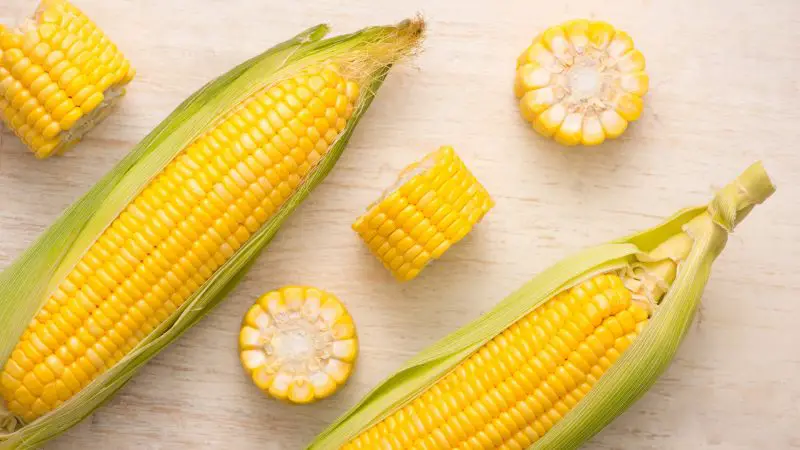
Here is the nutritional information for 100 g (3 oz) of corn:
- High in calories – 365
- High in carbs – 74.3 g
- Protein – 9.4 g
- Fiber – 7.3g
- Sugar – 0.6 g
- Fat – 4.7 g
- Vitamin A – 4%
- Zero vitamin C
- Vitamin E – 2%
- Thiamin – 26%
- Riboflavin – 12%
- Niacin – 18%
- Vitamin B6 – 31%
- Folate – 5%
- Pantothenic acid – 4%
- Calcium – 7 mg
- Iron – 15%
- Magnesium – 32%
- Phosphorus – 21%
- Potassium – 8%
- Zinc – 15%
- Copper – 16%
- Manganese – 24%
- Selenium – 22%
Is Corn Bad for Guinea Pigs? | Possible Risks
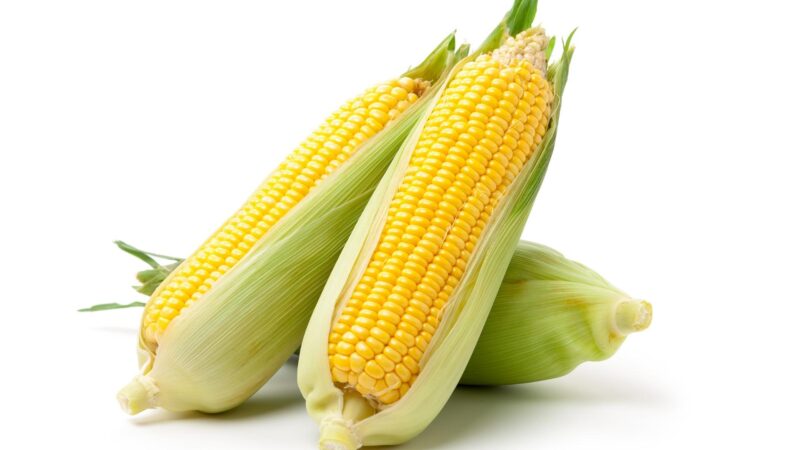
- Urinary problems – Corn has calcium and phosphorus. These two minerals can cause serious urinary problems in guinea pigs if they are consumed in excess. If they pile up as excess in their urinary systems, they can cause bladder and kidney stones, blood in the urine, frequent urinary infections, or painful urination.
- No scurvy prevention – Corn has no vitamin C and this is a bad thing for cavies. It is the one nutrient that guinea pigs always have to ingest because they can’t produce it naturally and can’t store it either. With a lack of vitamin C, cavies are prone to getting a dangerous disease called scurvy.
- Digestion problems – Corn has some sugar. Not too much, but it can still affect the digestion. They might get cramps or stool changes when they consume sugar.
- Rapid weight gain – Corn is very rich in calories, fats, and carbs. If guinea pigs consume too much of foods rich in these nutrients, they could increase in weight drastically.
- Stool changes – Corn is known to work up the digestive system and the bowels. Too much fiber can cause frequent bowel emptying or even loose stool.
Serving Size, Frequency and Preparation of Corns
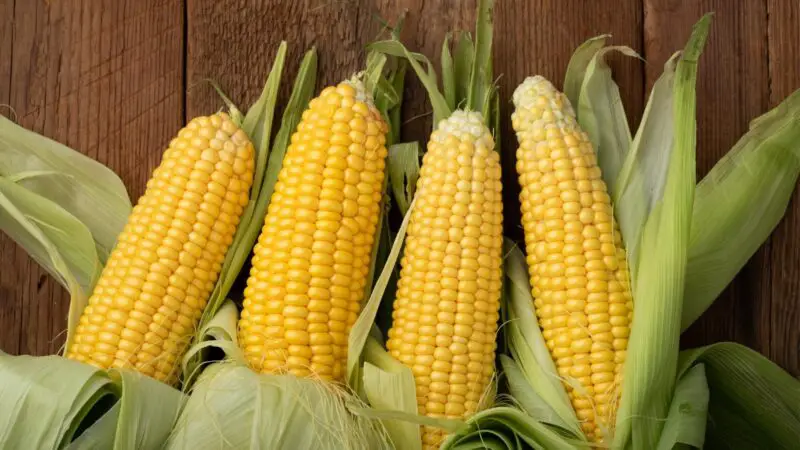
Always be careful with the serving size of the corn. An inch or two from the cob is a good measurement, so that means several kernels approximately for one guinea pig.
The frequency is something that needs special attention. If you don’t want to make the guinea pig chubby, try giving it corn just 1-2 times per week. Additionally, the preparation is simple. Just remember to give them corn in raw form, not cooked. Rinse the corn well before feeding the guinea pig, and separate the kernels.
More Information About Guinea Pigs and Corn
Can Guinea Pigs Eat Corn Husk and Silk?
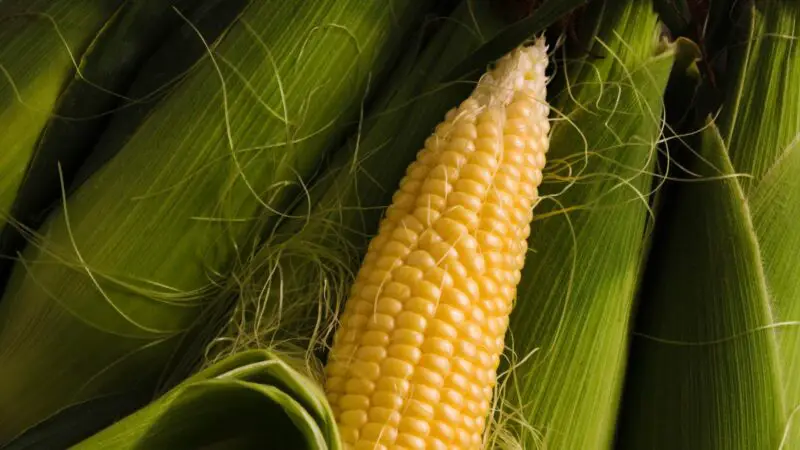
Guinea pigs really enjoy eating corn husk and silk. When cleaning the corn, don’t throw away the husk and silk instead give it to your guinea pig, as they really love its texture and taste.
As far as we know, there are no serious problems for guinea pigs from eating corn husk and silk. They are very similar to hay and grass that is why they are safe food and can be given almost daily. When feeding them corn husk, always choose the ones that are the closest to the cob because the outside ones could have been treated with pesticides.
Can Guinea Pigs Eat Corn Kernels?
Fresh, uncooked corn kernels can be consumed by guinea pigs. You may either let them eat straight from the cob or shave them. The center of the corn is extremely tough and inedible, so guinea pigs are not likely to try to eat it.
Hard, dry corn kernels should not be fed since they can lodge in the teeth and cause major choking hazards. Additionally, avoid giving guinea pigs frozen or canned corn since these products include chemicals and preservatives that are harmful to pigs.
Can Guinea Pigs Eat Popcorn?
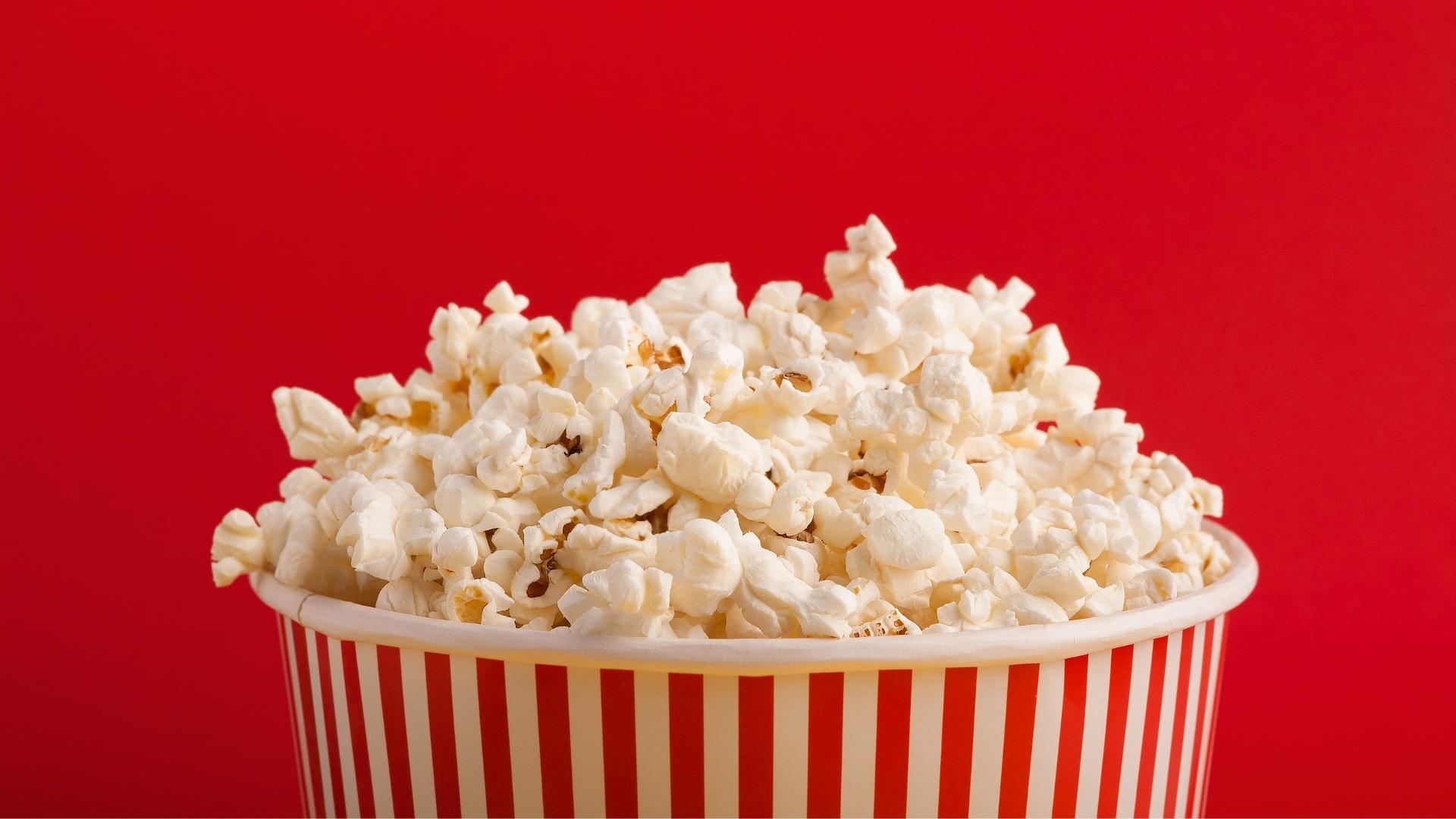
Guinea pigs can’t eat popcorn. They cannot eat cooked food at all, no matter what food it is. Also, they will not digest cooked foods. As a result, there might be belly pains or stool changes, or cramps. Also, popcorn is a processed food because it is made with oil, and is cooked.
Can Guinea Pigs Try Cornmeal?
Guinea should not try cornmeal. Cornmeal might be a filling and tasty food, but this is cooked corn flour with added salt, oil, or something else. The guinea pigs cannot eat cooked foods in the first place, so no matter how much your cavy wants to try this delicious cornmeal, do not give it to him! It can make the guinea pig bloated, and it can even cause diarrhea.
My Guinea Pig Is a Bit Chubby, Should I Give Him Corn?
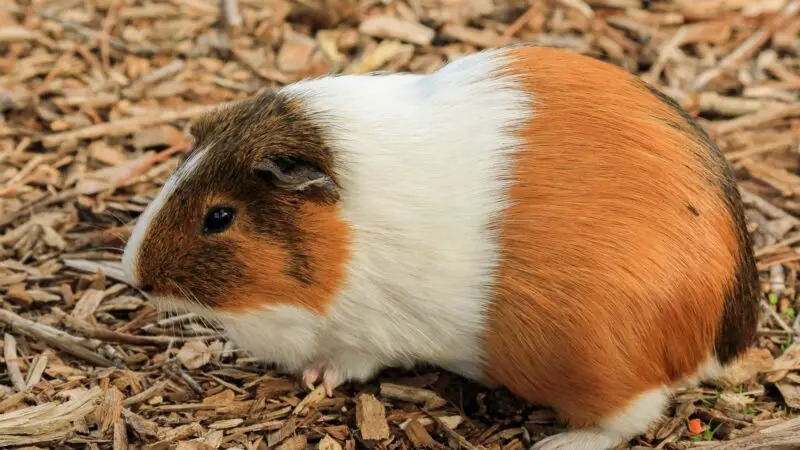
You can still give the cavy some corn, especially if it likes it so much. But, if the cavy is overweight, give it corn very sparingly and very rarely. Once a week is the maximum. Corn can be quite fattening when given often and in large amounts.
Fun Facts on Corn
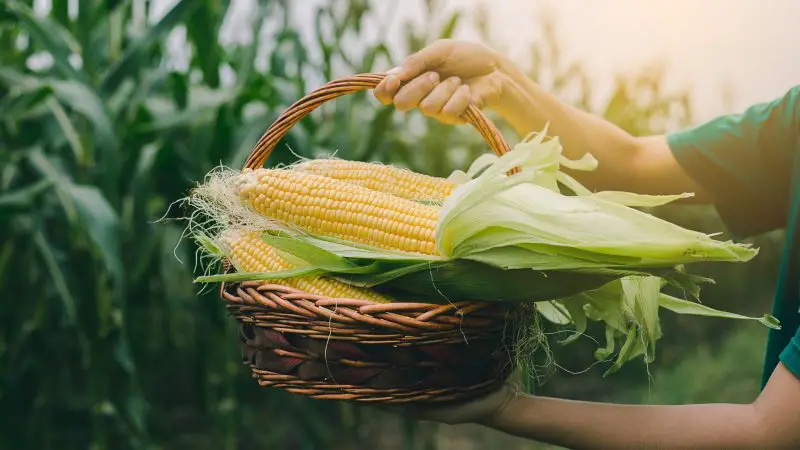
- Corn is also called maize, and this is also the Spanish word for corn, ‘maiz.’
- Corn belongs in the grass family and it is a cereal crop.
- The individual kernel is called a seed, and the cob is a part of the cornflower.
- Did you know that corn always has an even number of rows per cob?
- Approximately, the ear of corn (cob) has 800 kernels divided into 16 rows.
- There are almost 3,500 uses for corn!
- Corn is used mostly for the production of cereals, peanut butter, soups, potato chips, ice cream, marshmallows, baby food, margarine, cooking oil, mayo, chewing gum, and salad dressing.
- Sodas like Coke and Pepsi have corn sweeteners.
- One bushel of corn can be used for sweetening 400 cans of soda!
- Corn can also be found in other things; soap, fireworks, rust preventing items, paint, glue, laundry detergent, antibiotics, shoe polish, ink, paint, cosmetics, and plastic.
- In the past, during the time of early settlers in North America, corn was very valuable and it was traded for meat and fur.
- Today, corn is unlikely to be found in the wild, because it is a domestic plant.
- Corn was cultivated and domesticated for the first time 10,000 years ago, by the indigenous people of southern Mexico.
- The kernels can be of various colors too! They can be bluish-gray, green, purple, white, red, and yellow.
- Ethanol alcohol is also made with corn!
We have also made a full list of foods that guinea pigs can and can’t eat (150+ Types of Foods). Be sure to also check our recommended products page for everything you will ever need to assure a happy life for your guinea pigs. Hope this information was helpful and you have found the answer you were looking for.
List of Sources
Growing Sweet Corn [Fact Sheet]
Nutrient Requirements of Laboratory Animals: Fourth Revised Edition
The Effects of Diet on Anatomy, Physiology and Health in the Guinea Pig
